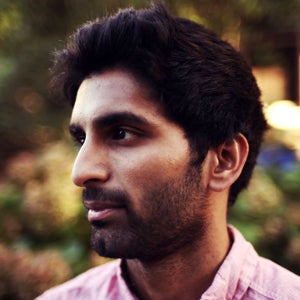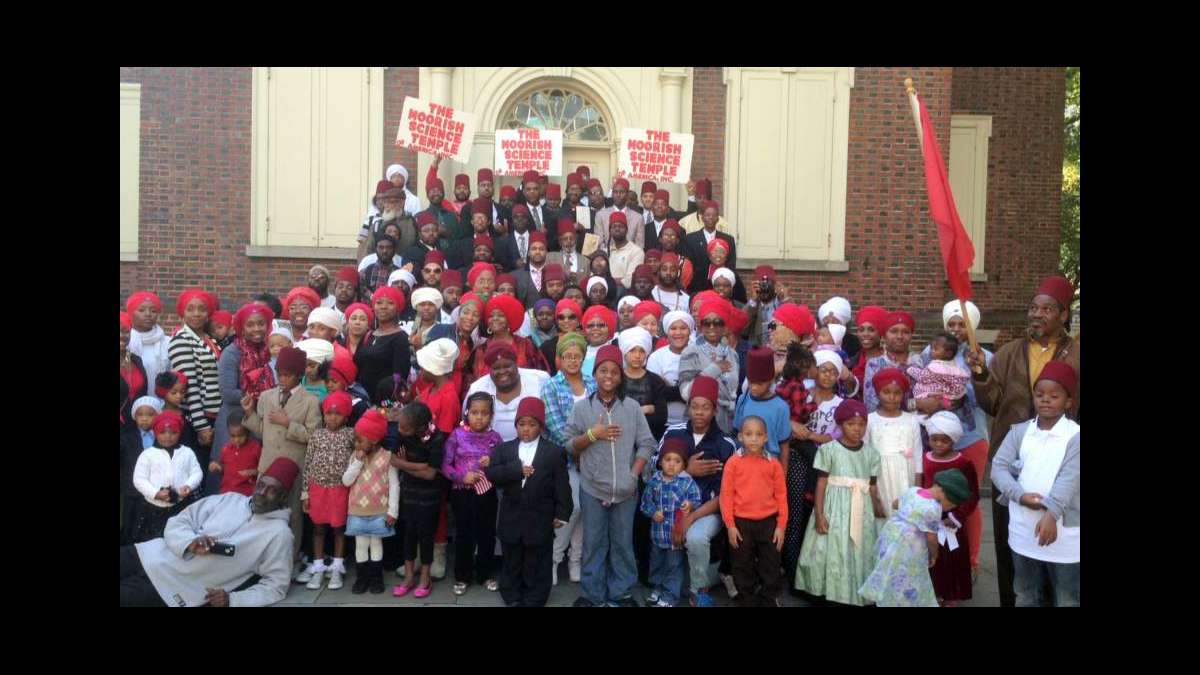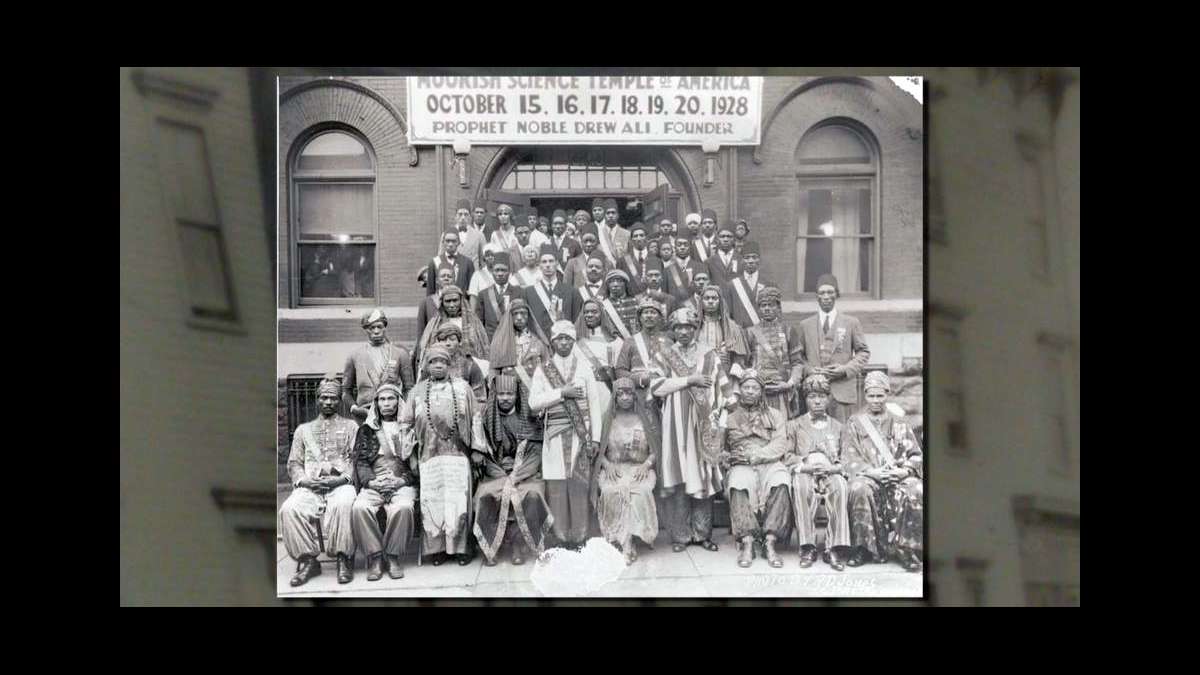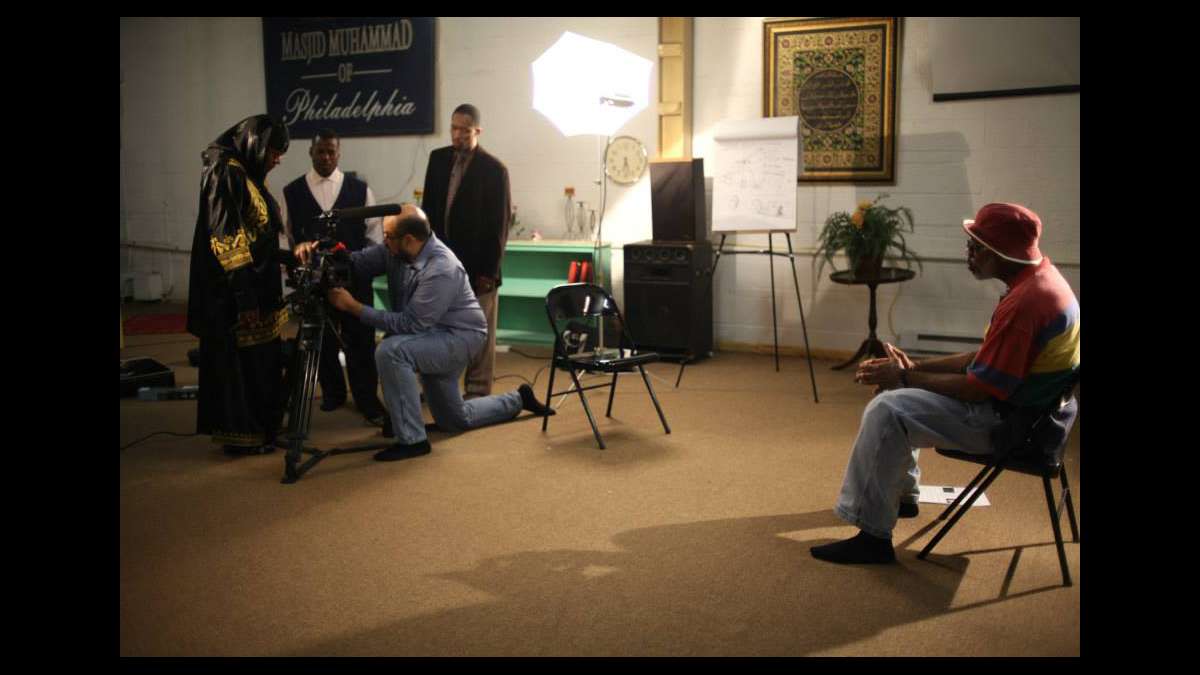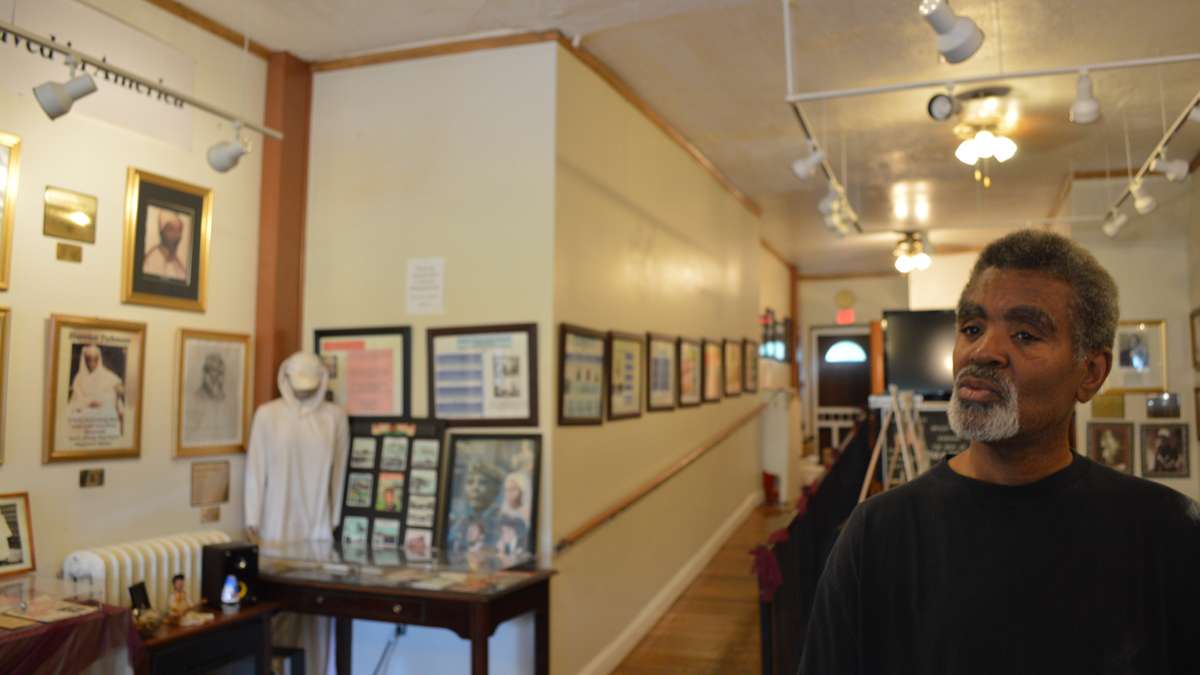Filming Philadelphia’s Muslim past and present
For many Muslims born to immigrant parents in this country, our first encounters with an indigenous American Muslim tradition allowed us to see pieces of ourselves in the cultural life and history of the United States. Whether it was watching slaves carry their religion to Southern plantations in the TV series “Roots,” poring over the prison conversion story in “The Autobiography of Malcolm X,” sifting through old footage of Muhammad Ali citing his religious beliefs as his rationale for refusing his Vietnam draft notice, or deciphering Islamic references in the lyrics of hip-hop artists such as Lauryn Hill or A Tribe Called Quest, each moment illuminated a rich archive of American Muslim history that we had never been exposed to in our homes, schools, or even in our mosques.
Since 2010, Scribe Video Center has been facilitating a number of community history projects titled “Muslim Voices,” aimed at producing short documentary films that tell the stories of Muslim Philadelphia, one of the largest Muslim communities in the United States. Scribe partnered with local Muslim organizations and provided media trainings in order to not only build technical skills behind the camera, but also to explore the best methods to tell their stories and define themselves.
“With Muslim Voices of Philadelphia, participating groups produce media works that are useful to their communities, but also gain video production and media skills that extend beyond the project,” said Zein Nakhoda, project coordinator at Scribe Video Center. “The groups’ work challenges stereotypes and negative perceptions of Muslims, but even further shares positive stories of the vibrancy and strength of diverse Muslim communities in the Philadelphia area.
The collaborative media pieces focus on diverse topics, including the history and legacy of the Moorish Science Temple and the Nation of Islam, mysticism, immigration, conversion stories, community development, student associations, and the experience of women in the Ahmadiyya community. The documentaries premiered on Tuesday, June 24 at International House Philadelphia.
‘Lost No More’
“Our film is trying to show the evolution of Islam in America,” said Abdul Rahim Muhammad of the New Africa Center, a local museum dedicated to American Muslim history. “A lot of people, even Muslims themselves, don’t know about the Muslim experience in America, particularly the African-American Muslim experience. When I grew up, we were the voice of the community. Now we’re barely heard.”
The New Africa Center’s film, “Lost No More,” illustrates the growth and development of Islam in America under the leadership of Elijah Muhammad and the Nation of Islam.
“The Nation of Islam always taught that Islam was a vehicle for black self-determination, self-development, moral discipline, and community empowerment,” said Abdul Rahim. “People forget these days that’s how American Islam got started: freedom, justice and equality.”
Much of that early history took place on Lancaster Avenue in West Philadelphia, where Malcolm X and Elijah Muhammad’s son, Warith Deen Muhammad, were appointed to serve in the 1950s.
“Lancaster Avenue was sacred territory for the African-American Muslim community,” said Abdul Rahim. “How many people know that Malcolm and Warith Deen used to teach here?”
After Elijah Muhammad’s death in 1975, Warith Deen was appointed leader and began to institute a number of changes to the organization.
“Warith Deen Muhammad was instrumental in transitioning African-American Muslims to what I like to call ‘Islam proper’ or Islam as practiced by Muslims worldwide,” said Abdul Rahim. “He stopped saying that white people were the devil and adjusted the theology to be more based in the Quran. It sent major shockwaves through the community, but Warith Deen continued to nurture Islam and black freedom in his own way.”
‘Branches to Philadelphia, Rooted in Peace’
Philadelphia’s Moorish Science Temple #11 shared their story as one of the first Muslim institutions in the United States. The Moorish Science Temple grew prominent in the the 1920s and 1930s as they preached in urban African-American communities wearing traditional African clothing and red turbans and fezzes. Their founder, Noble Drew Ali, urged African-Americans to reject what he considered derogatory terms, such as “black,” “colored,” and “negro.” Instead, Ali presented a message of black pride and self-sufficiency, believing that African-Americans should form an identity based around the Moorish traditions of North Africa.
“Through the film, the public can appreciate the historical roots of Islam in Philadelphia, going back as far as 1927 in South Philadelphia,” said Terrance Hopkins-Bey of Temple #11 in North Philadelphia. “The film puts into proper perspective the evolution of Islam in Philadelphia, beginning with the Moorish Science Temple. When American Muslims tell their own story, the unique and rich tapestry woven in the Islamic faith can be witnessed and best appreciated from those who actually live the faith.”
‘Keeping Islam Simple & Serving the Common People’
Masjid Muhammad also participated in the community history project by producing a documentary about the origins and work of their mosque in Germantown, “Get to Know Us: Keeping Islam Simple & Serving the Common People.”
“We built our mosque 25 years ago in one of the worst neighborhoods in Philadelphia,” said Imam Suetwidien Muhammad. “We started a bunch of free or low-cost programs: GED prep, adult and computer literacy, tax education, a boxing gym named after Muhammad Ali, treatment for drug addiction, free clothing and food, and services for people coming home from prison. Our film shows how Islam changed a lot of people in the community.”
When Imam Suetwidien visited Mecca to participate in the Muslim pilgrimage, people from around the world refused to believe he was from the United States. His interactions abroad made him realize that he needed to work on educating others about his experience and work as an American Muslim.
“They kept asking me where my family came from,” said Imam Suetwidien who also directs the Muslim League of Voters for Delaware Valley, a civic association consisting of over 55 imams in the region. “Many people don’t even know we exist. We’ve had at least three generations of African-American Muslims born consecutively in this country. We need to be able to tell ourselves and the outside community that we are active and productive members of the community.”
‘Muslim Women in Perspective’
Lajna Ima’illah, the women’s wing of Philadelphia Ahmadiyya Muslim Community, produced a web series called “Maidservants of Allah: Muslim Women in Perspective,” about issues affecting Muslim women, including dress, marriage and education.
“Our goal was to educate and remove misconceptions that exist about Islam, and Muslim women in particular,” said Nusrat Jahan Bashir from the group based in Philadelphia’s Logan neighborhood. “Unfortunately there have been some horrendous things done in the name of Islam, which have nothing at all to do with Islam. We can either be defined by their actions or we can speak out and tell our own stories.”
The groups all noted that they had gained much insight into storytelling and filmmaking through Scribe’s leadership and direction.
“Working with Scribe has made me aware of all the talented people we have in Philadelphia,” said Bashir. “It has been extremely rewarding and definitely a great learning experience and one we hope to build on in the future. Scribe is really a gem for Philadelphia.”
—
Screenings of the short films will occur throughout Philadelphia into autumn, including:
Sept. 6, 3 p.m.: African American Museum in Philadelphia
Sept. 14, 3:30 p.m.: Lutheran Theological Seminary, in partnership with Reconstructionist Rabbinical College
Sept. 18, 7 p.m.: Free Library Park Central
Oct. 24, 2 p.m.: Al Aqsa Islamic Academy
Oct. 30, 6-8 p.m.: Philadelphia History Museum
And dates to be announced at the University of Pennsylvania, Drexel University, the National Museum of American Jewish History, and the Slought Foundation.
WHYY is your source for fact-based, in-depth journalism and information. As a nonprofit organization, we rely on financial support from readers like you. Please give today.


